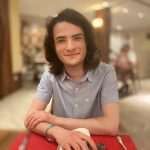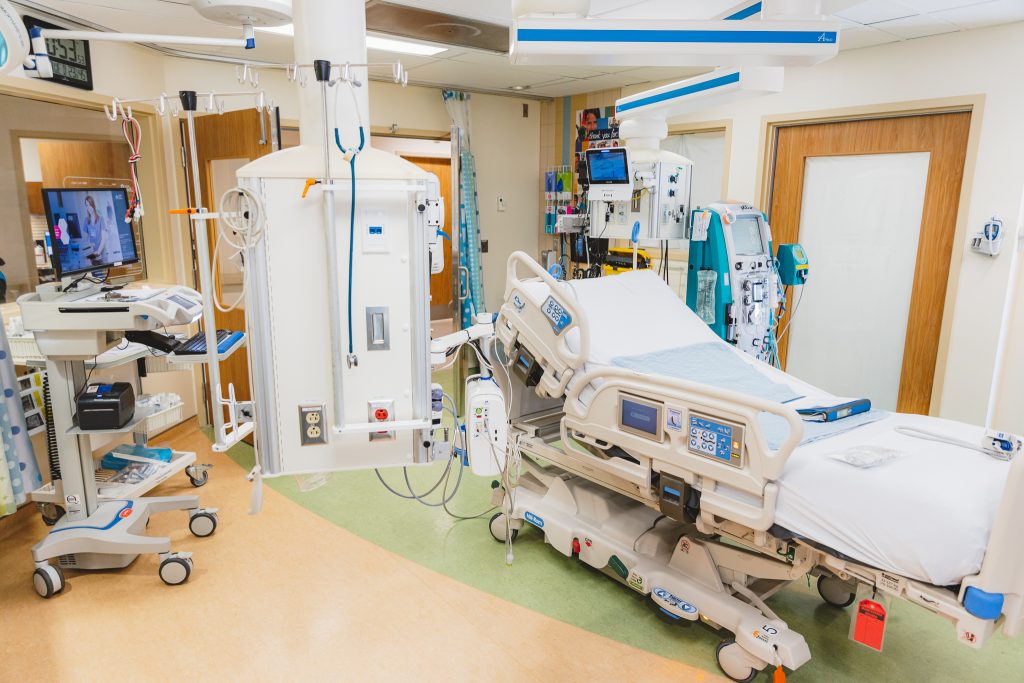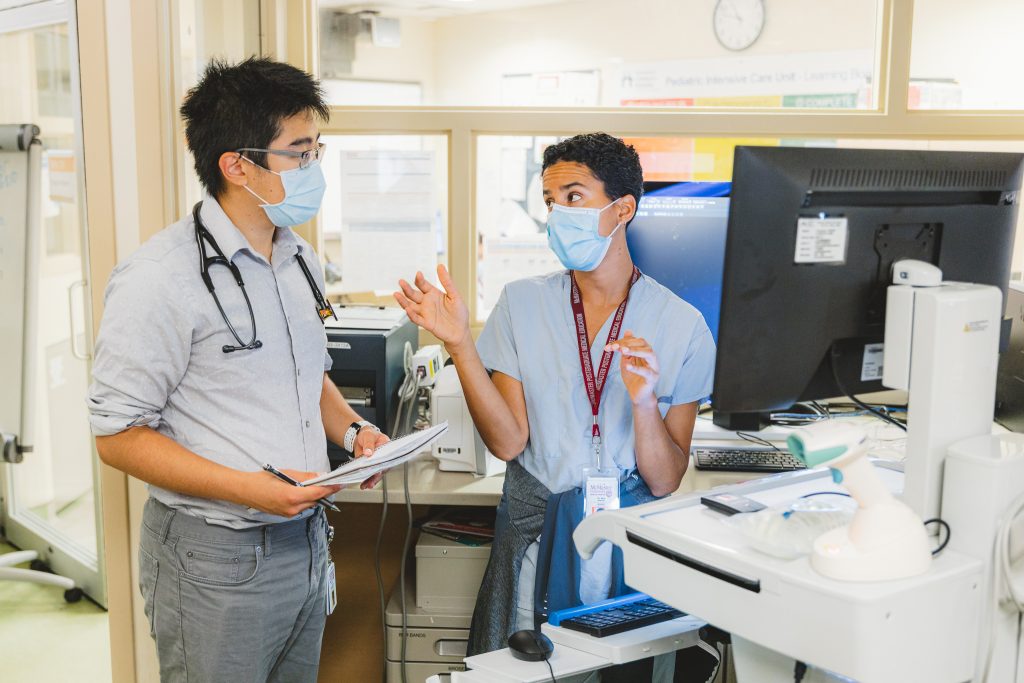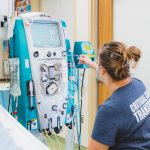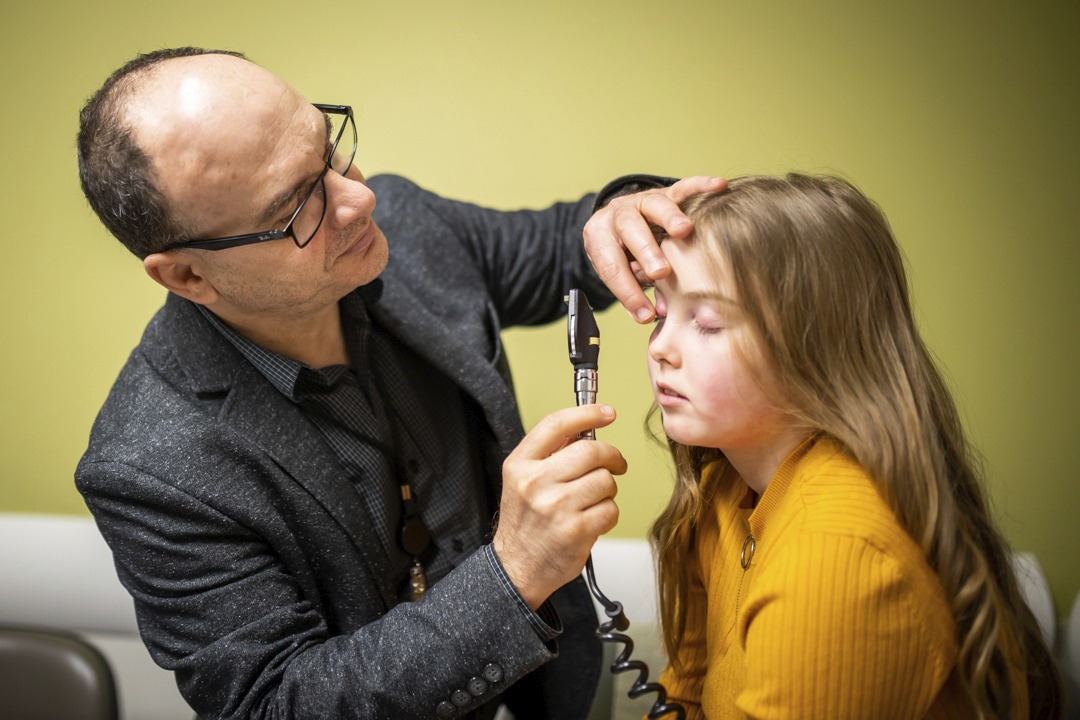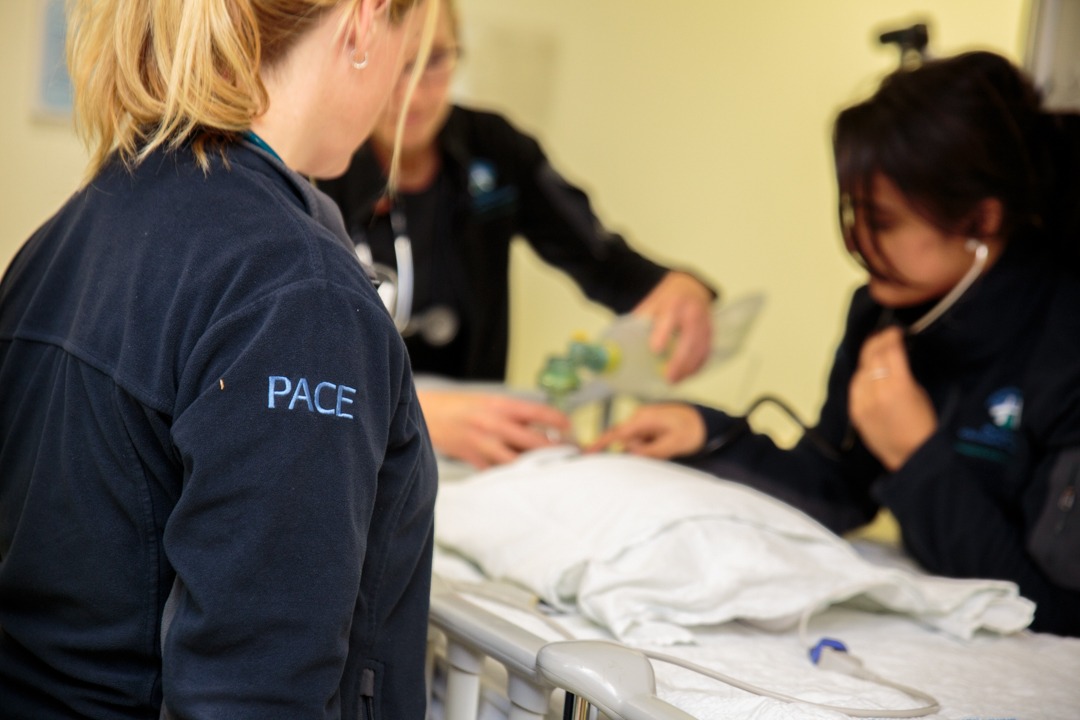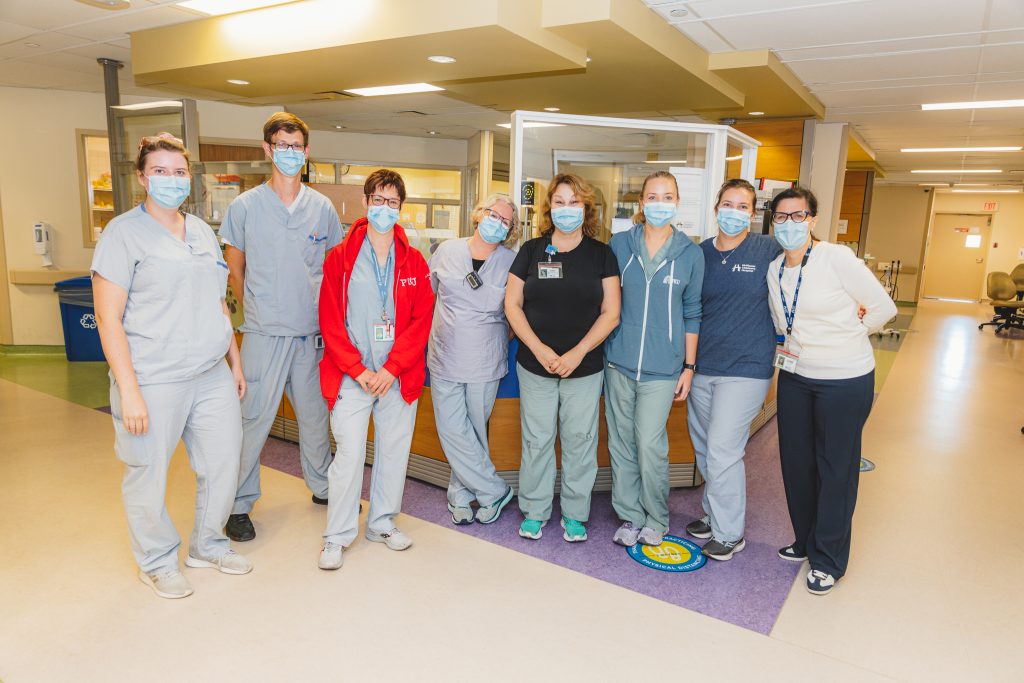
MCH’s Pediatric Intensive Care Unit is “nothing short of exceptional”
For parents whose children receive care in McMaster Children’s Hospital’s pediatric intensive care unit (PICU), the experience usually stays in their hearts forever. The specialized unit has grown and evolved over the last 35 years and is celebrating an anniversary this June.
“Care was nothing short of exceptional across the whole spectrum of health-care providers.”
“It was a challenging time as a parent, watching your child fight for his life on a daily basis,” remembers Kirsten Culver. When her son William was four, he was diagnosed with Wilm’s Tumour, a type of kidney cancer. There were a lot of complications that affected his ability to breathe and tolerate the treatment, so the family spent 101 days in the PICU. “Care was nothing short of exceptional across the whole spectrum of health-care providers,” Culver adds.
Now 18, William is doing extremely well.
“He just finished high school and is preparing to attend university at Queen’s next year,” his mom says. “We are so grateful that while his treatment and recovery were long and difficult, that these challenges haven’t materially impacted his ability to live a full and engaging life. He loves philosophy, history, and writing and is looking forward to pursuing these areas at university this September.”
A brief history
In 1972, McMaster University Medical Centre (MUMC) opened in Hamilton, the site of McMaster Children’s Hospital (MCH) today.
In 1988, the concentration of specialized pediatric services at MUMC was recognized with the designation of a Children’s Hospital. In 2002, the hospital was renamed McMaster Children’s Hospital.
Prior to 2004, the intensive care unit (ICU) was a shared service for children and adults. But on January 8, 2004, the pediatric ICU separated from the adult ICU with a dedicated team of health-care providers who specialized in children’s acute care. However, it still shared the same physical space as the adult ICU. More than 360 pediatric patients received care that year.
In 2007, the PICU moved to a temporary location within the building before finding its permanent home in its current location five years later.
The vision to create a specialized PICU was the intention for more than ten years. Finally in 2012, this dream became a reality for the specialized PICU care team and the patients and families who would require this care. This was the first time the PICU was an independent unit.
And today, June 14, marks 10 years of the PICU in its current location, 3X at MCH.
“Generous donations by the Michael DeGroote family and the Soroptomist Internation Club of Hamilton-Burlington made the creation of a new, state-of-the-art PICU possible, which included 12 single rooms – where previously there were four — with big windows and warm colours, family meeting rooms, and the ability for families to care for their children while remaining comfortably by their bedsides,” says Filomena Canci, clinical manager of the PICU.
“It has been a truly remarkable transformation and exponential growth of the program, the people and the service. PICU care has also transformed even in the short ten years and the team continues to evolve, learn and lead innovative critical care.”
The PICU cares for the sickest children not just from MCH, but from across the entire region of Southern Ontario.
PICU teams care for patients who either have, or are at high risk of developing, a life-threatening disease or injury. PICUs have advanced life-support technology and monitoring equipment, and are staffed 24/7 by a team of highly specialized health-care professionals from many different disciplines.
Well-being is a priority
Over the last ten years, MCH’s PICU has seen many success stories – but the well-being of patients and their families is always the top priority.
“Despite the growth in all directions, the increasing numbers, and the international reach, the MCH PICU remains the same in many ways,” says PICU doctor Ronish Gupta. “Each and every child and family are approached with the same dedication and care as has always been. While the team changes in many ways, the core culture of maintaining child and family well-being above all else remains constant.”
Having a specialized pediatric unit has enabled staff to focus on the social, emotional, family and environmental components of well-being as well as the physical needs of the patient.
“The PICU team is leading innovative care bundles that achieve a reduction in the number of days a patient is intubated, mindfully reduce delirium knowing the impact on the developing brain, use digital tools to monitor noise in the unit, have dedicated sleep times with suitable lighting levels etc. to contribute to a patient’s well-being and achieve recovery from their critical illness,” says clinical leader of child life services at MCH, Tracy Akitt.
“It is not surprising to walk by a patient room and find a three-year-old intubated patient, sitting on a play mat on the floor playing with blocks or cars, as the care team embraces the challenge of keeping the patient safe while ensuring normal development is maintained as much as possible.”

The pediatric intensive care unit has a dedicated space and dedicated team of health-care providers to care for critically ill children.
Many achievements
Dr. Cynthia Cupido has worked in the department of Pediatrics and Critical Care at MCH for decades. She was the Medical Director of the PICU when it moved into its new space ten years ago.
During her time, she has witnessed the separation of the pediatric service from the adult service, the relocation of the PICU within the hospital site, and the formation of many different specialized PICU related programs:
- Royal College of Physicians and Surgeons of Canada accredited subspecialty training program for pediatric critical care residents
- Plasmapheresis program, a therapy where a patient’s blood is removed and filtered for antibodies
- MCH critical care rapid response team also known as the PACE (Pediatric Assessment of Critical Events) team, the medical emergency team that is called to areas throughout the hospital to support the care of acutely ill children
- Brand new pediatric critical care transport service to pick up critically ill children from hospital partners across the province and bring them to MCH’s PICU for care
“Working in the PICU has been an opportunity to support colleagues in building and growing an internationally recognized, exceptional clinical and academic PICU service from the ground up,” says Cupido. “It’s been quite meaningful for me to have been able to foster and support the expansion and growth of the PICU service at MCH over the course of my career. Having trained at MCH, it is particularly special for me to see what we have grown into over the past three decades!”
Gupta says the PICU is a leader in many other areas, too.
“MCH’s PICU is also internationally renowned for challenging the assumption that ICU patients must be intubated and sedated. The MCH PICU has championed getting kids awake and out of bed even during the PICU illness, and often even with breathing tubes, central lines, and arterial lines in place. What was once unheard of is now everyday practice, with PICUs around the world clamoring to catch up. These strategies have reduced recovery times and the overall impact of critical illness on our kids,” he says.
“The PICU has also taken a global stand on children’s health by building a program to train doctors from around the world how to best care for critically ill children. Each year, a select group of pediatricians are accepted into the specialized training program in the PICU where they learn to become experts in the care of such children.”
Continuing to grow
More than 8,650 patients have received care in the MCH PICU, including 700+ patients last year alone. The team is staffed by over 150 people who make the delivery of this specialized care possible, including intensivists, nurses, respiratory therapists and a dedicated team of allied health professionals.
MCH has the second busiest PICU in the province by patient volume, only after SickKids Hospital in Toronto.
“We continue to grow rapidly as we service our community, sub-specialty pediatric services, and local and provincial partners,” says Cupido. “We are excited to continue to evolve to support the patients and families who require this specialized, critical care.”

